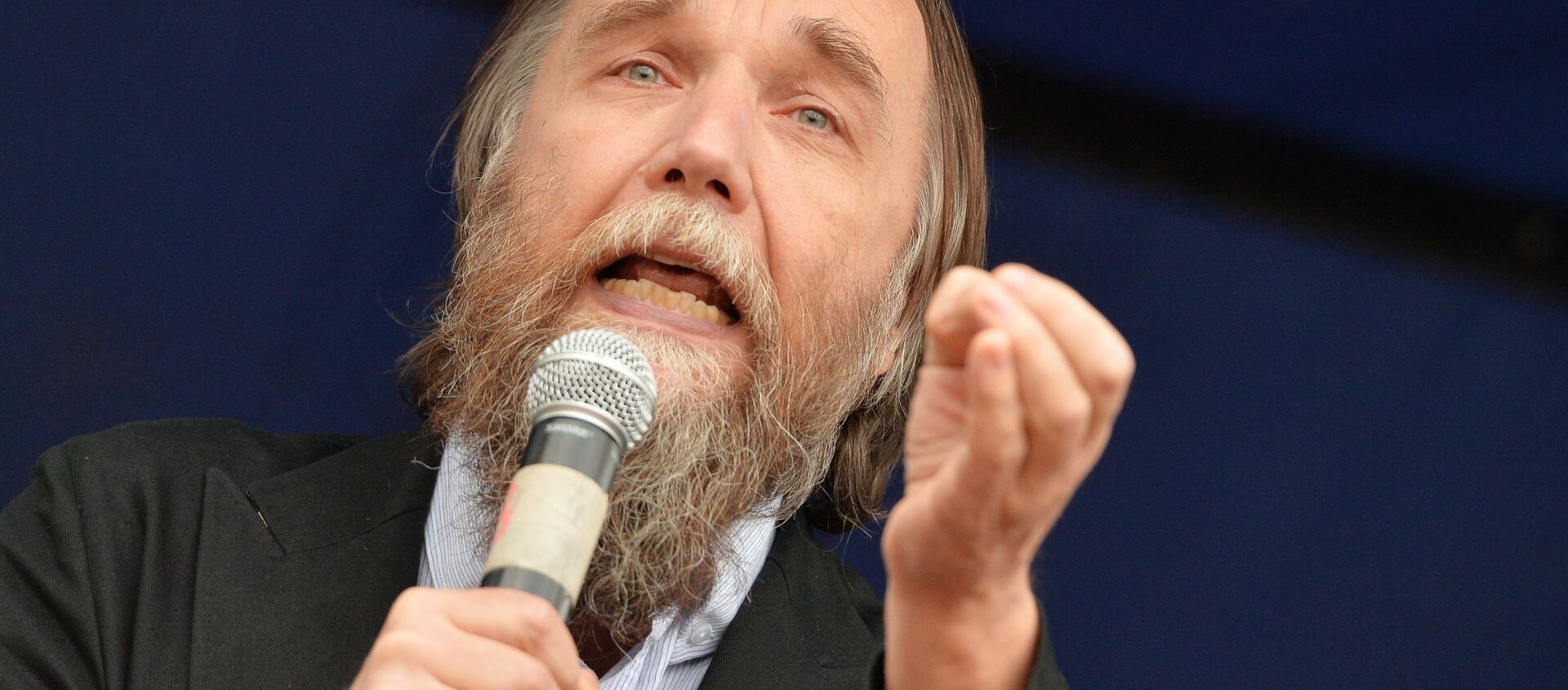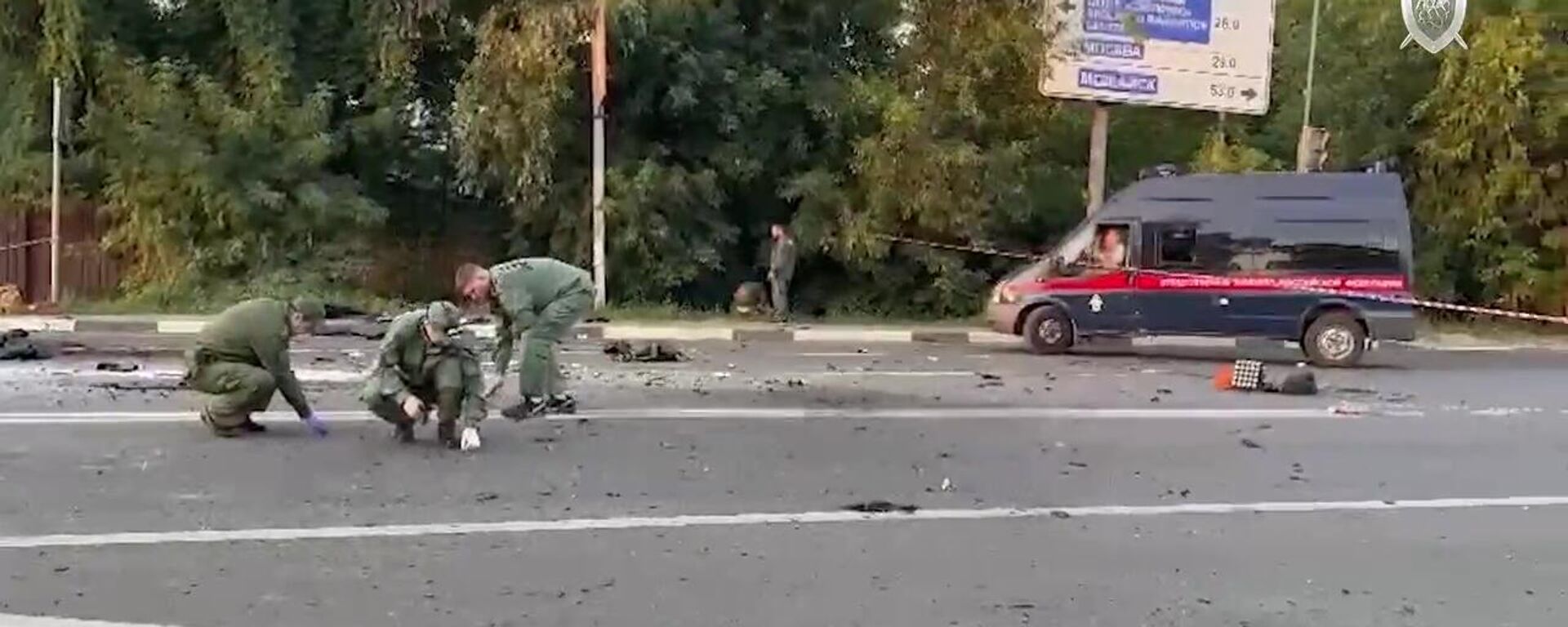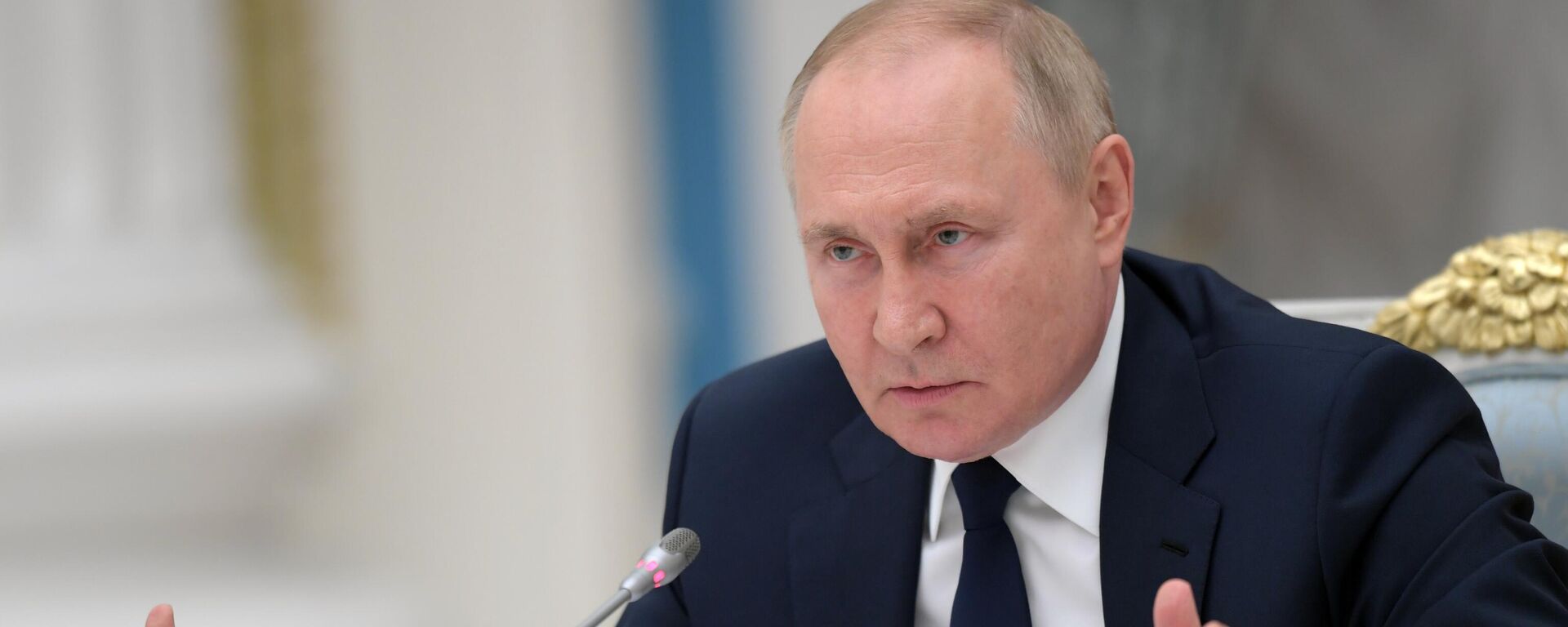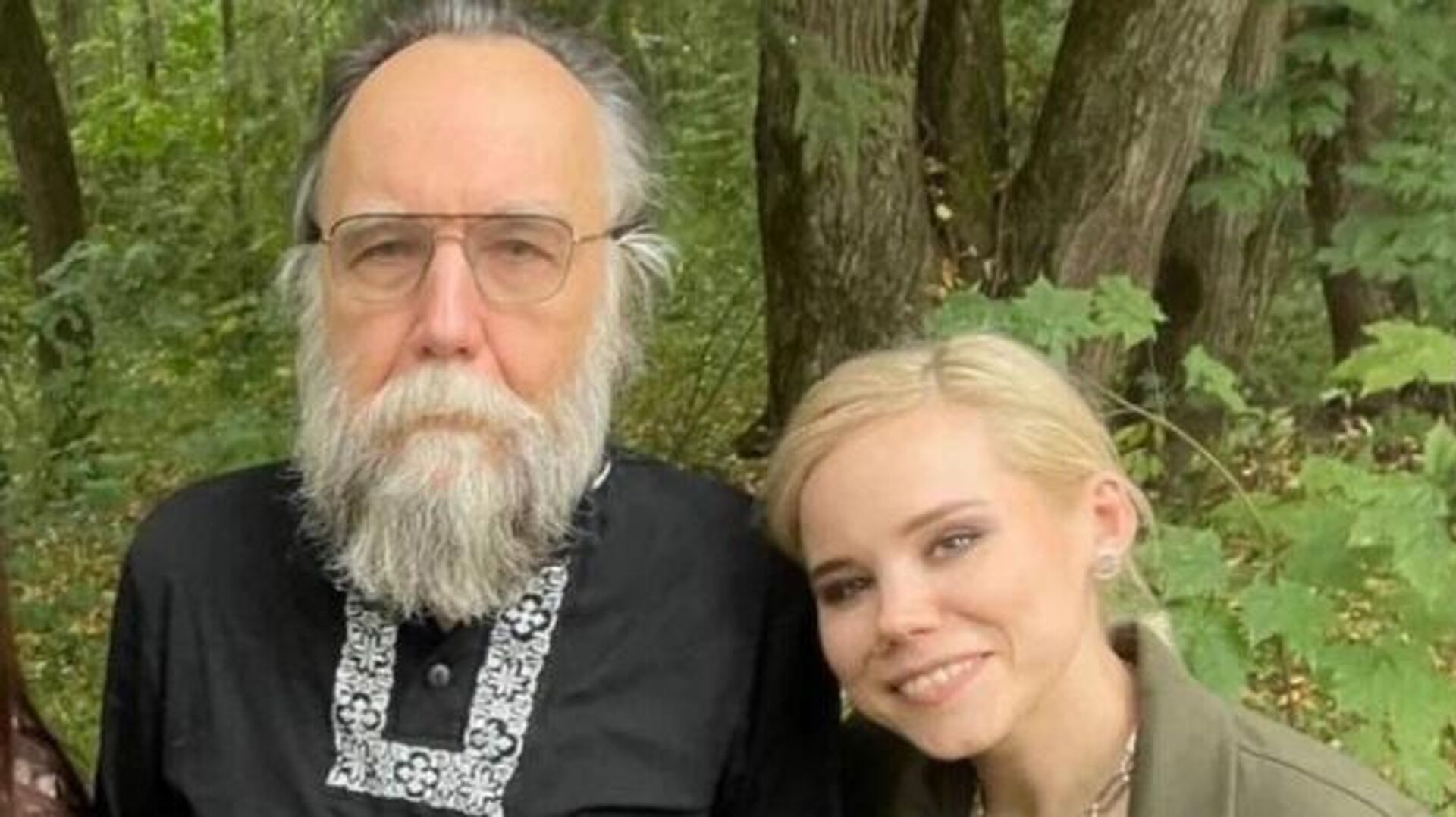https://sputnikglobe.com/20220821/just-who-is-daria-duginas-father-described-by-west-as-putins-brain-1099830886.html
Just Who is Daria Dugina’s Father, Described by West as ‘Putin’s Chief Ideologue’?
Just Who is Daria Dugina’s Father, Described by West as ‘Putin’s Chief Ideologue’?
Sputnik International
Russian authorities opened a murder case Saturday after Daria Dugina, daughter of political philosopher and geostrategic theorist Alexander Dugin, was killed... 21.08.2022, Sputnik International
2022-08-21T17:42+0000
2022-08-21T17:42+0000
2022-08-22T06:55+0000
sputnik explains
alexander dugin
vladimir putin
media
analysis
https://cdn1.img.sputnikglobe.com/img/07e6/08/15/1099830741_0:0:668:375_1920x0_80_0_0_fa59a18e96e9394515f8eea829a96ace.jpg
Western media have spared no time in squeezing hype and sensationalism from the grizzly killing of Daria Dugina, with article after article on her death characterizing the late 29-year-old journalist’s father Alexander as Vladimir Putin’s “ally,” “closest aide,” or even the “brain” behind the Russian president’s geostrategic thinking.Who is Mr. Dugin?Dugin, 60, has been on the radar of Western mainstream media for nearly a decade, and since the beginning of the Ukrainian crisis in 2014 has often been described as a key Russian political thinker with close ties to the Kremlin or even with Putin personally – claims which are shaky at best and tabloid-level speculation at worst.The thinker and academic first emerged on the Russian political scene in the late 1980s and early 1990s, when he marked opposition to the liberal, pro-Western political, social, and economic reforms being carried out by Mikhail Gorbachev and Boris Yeltsin.In 1993, Dugin co-founded the National Bolshevik Party (NBP) – a radical political and counterculture movement seeking to fuse the seemingly irreconcilable – ultranationalism and communism, together with dissident Eduard Limonov and underground musician Egor Letov. The party became known for its "direct action" activities, including attacks on politicians and other public figures across the post-Soviet space, occupations of government buildings and party offices to protest neoliberalism, economic reforms, graft, NATO expansionism, and other issues. The NBP was eventually banned by Russian courts in 2007 over its radical activities.Dugin left the NBP in 1998 amid irreconcilable differences with Limonov, and became an advisor to Communist Party politician and then-Duma Chairman Gennady Seleznev. During this period, he became head of the "Center for Geopolitical Expertise" on national security issues in the Duma, and lectured on geopolitics for the Russian General Staff.From the late 1990s onward, Dugin became a proponent of Eurasianism – a highly eclectic ideology consisting of a nationalism, Orthodox faith, socialist and anti-modernist ideas and views, mysticism, and marked opposition to US-style social liberalism and capitalism.Putin’s 'Aide, Ally and Brain'?While some of Mr. Dugin’s views may superficially resemble those of the Russian president – especially as the latter are often interpreted by Western mainstream media painting him as a far-right or far-left radical, a closer inspection reveals crucial, narrative-breaking differences.For one thing, Putin is not a socialist, and the Russian government’s policies have been firmly rooted in free market principles throughout his tenure in office. Secondly, unlike Dugin, who holds the USSR up on a pedestal as an expression of the “Russian dream,” and who has praised Vladimir Lenin and Joseph Stalin at length, Putin has distanced himself from the USSR and consistently criticized the Bolsheviks’ policies, especially Lenin, blaming the revolutionary for the “time bombs” he says were placed under Russia, which culminated in the Soviet Union’s destruction.Putin, unlike Dugin, has not advocated for a “Eurasianist” approach to relations with Russia’s neighbors, rejecting the latter’s vision of an empire stretching from the Far East to the shores of the Atlantic in favor of close trade and economic ties with the European Union, and the formation of a multipolar world order in which the sovereignty and freedom of national development trajectories of states both big and small are respected.Far from being a Kremlin loyalist or mouthpiece, Dugin has regularly criticized Putin and the Russian government over what he perceives as their shortcomings. In 2014, Dugin called for a tougher line in the crisis in Donbass, while Moscow sought to hammer out a negotiated settlement, with his criticisms ultimately contributing to his dismissal from his professorship at Moscow State University the same year. Dugin has also attacked Russia’s elites over their overly fragmented nature and susceptibility to Western influence. In a 2019 interview, Dugin praised Putin for “saving Russia,” but added that he felt that “none of his successes have reached a point of irreversibility.”In a 2015 interview, Dugin revealed that he did not know the Russian president personally, had no influence over him, and never received a reply to any of the letters he had sent to the president.If Not ‘Putin’s Brain’, Then Who?Dugin is not “Putin’s brain,” nor his aide, secret counsel, or mentor. What he is is a leading Russian intellectual, political philosopher, and contemporary thinker who emerged to prominence during the turbulent years of the collapse of the USSR, and has managed to stay politically and publicly relevant for more than 30 years.
https://sputnikglobe.com/20150905/russia-west-dugin-a-mystical-threat-1026641922.html
https://sputnikglobe.com/20220821/moscow-if-ukrainian-trace-is-found-in-duginas-death-itll-prove-kievs-state-terrorism-policy-1099816725.html
https://sputnikglobe.com/20220816/putin-collective-west-purposely-destroying-european-security-system-nato-moving-east-1099639271.html
Sputnik International
feedback@sputniknews.com
+74956456601
MIA „Rosiya Segodnya“
2022
News
en_EN
Sputnik International
feedback@sputniknews.com
+74956456601
MIA „Rosiya Segodnya“
Sputnik International
feedback@sputniknews.com
+74956456601
MIA „Rosiya Segodnya“
sputnik explains, alexander dugin, vladimir putin, media, analysis
sputnik explains, alexander dugin, vladimir putin, media, analysis
Just Who is Daria Dugina’s Father, Described by West as ‘Putin’s Chief Ideologue’?
17:42 GMT 21.08.2022 (Updated: 06:55 GMT 22.08.2022) Russian authorities opened a murder case Saturday after Daria Dugina, daughter of political philosopher and geostrategic theorist Alexander Dugin, was killed in an apparent car bombing. Who is Mr. Dugin, and does he really have the fantastical influence on contemporary Russian domestic and foreign policy that the West seems to think he does?
Western media have spared no time in squeezing hype and sensationalism from the grizzly killing of Daria Dugina, with article after article on her death characterizing the late 29-year-old journalist’s father Alexander as Vladimir Putin’s
“ally,” “closest aide,” or even the
“brain” behind the Russian president’s geostrategic thinking.
Dugin, 60,
has been on the radar of Western mainstream media for nearly a decade, and since the beginning of the Ukrainian crisis in 2014 has often been described as a key Russian political thinker with close ties to the Kremlin or even with Putin personally – claims which are shaky at best and tabloid-level speculation at worst.

5 September 2015, 17:19 GMT
The thinker and academic first emerged on the Russian political scene in the late 1980s and early 1990s, when he marked opposition to the liberal, pro-Western political, social, and economic reforms being carried out by Mikhail Gorbachev and Boris Yeltsin.
In 1993, Dugin co-founded the National Bolshevik Party (NBP) – a radical political and counterculture movement seeking to fuse the seemingly irreconcilable – ultranationalism and communism, together with dissident Eduard Limonov and underground musician Egor Letov. The party became known for its "direct action" activities, including attacks on politicians and other public figures across the post-Soviet space, occupations of government buildings and party offices to protest neoliberalism, economic reforms, graft, NATO expansionism, and other issues. The NBP was eventually banned by Russian courts in 2007 over its radical activities.
Dugin left the NBP in 1998 amid irreconcilable differences with Limonov, and became an advisor to Communist Party politician and then-Duma Chairman Gennady Seleznev. During this period, he became head of the "Center for Geopolitical Expertise" on national security issues in the Duma, and lectured on geopolitics for the Russian General Staff.
From the late 1990s onward, Dugin became a proponent of Eurasianism – a highly eclectic ideology consisting of a nationalism, Orthodox faith, socialist and anti-modernist ideas and views, mysticism, and marked opposition to US-style social liberalism and capitalism.
In 2009, Dugin penned the Fourth Political Theory, a treatise akin to late Libyan leader Muammar Gaddafi’s Green Book on a “new” political ideology designed to succeed the 20th century ideologies of Western-style liberalism, socialism, and fascism in light of the challenges posed by Western postmodernism. The latter was described in his book as a “morbid blend of the society of the spectacle and consumer culture” seeking “ultimate world domination” upon which a “war” must be waged.

21 August 2022, 09:05 GMT
Putin’s 'Aide, Ally and Brain'?
While some of Mr. Dugin’s views may superficially resemble those of the Russian president – especially as the latter are often interpreted by Western mainstream media painting him as a far-right or far-left radical, a closer inspection reveals crucial, narrative-breaking differences.
For one thing, Putin is not a socialist, and the Russian government’s policies have been firmly rooted in free market principles throughout his tenure in office. Secondly, unlike Dugin, who holds the USSR up on a pedestal as an expression of the
“Russian dream,” and who has
praised Vladimir Lenin and Joseph Stalin at length, Putin has distanced himself from the USSR and
consistently criticized the Bolsheviks’ policies, especially Lenin,
blaming the revolutionary for the “time bombs” he says were placed under Russia, which culminated in the Soviet Union’s destruction.
Putin, unlike Dugin, has not advocated for a “Eurasianist” approach to relations with Russia’s neighbors, rejecting the latter’s vision of an empire stretching from the Far East to the shores of the Atlantic in favor of
close trade and economic ties with the European Union, and the formation of a multipolar world order in which the sovereignty and freedom of national development trajectories of states both big and small are respected.

16 August 2022, 07:08 GMT
Far from being a Kremlin loyalist or mouthpiece, Dugin has regularly criticized Putin and the Russian government over what he perceives as their shortcomings. In 2014, Dugin called for a tougher line in the crisis in Donbass, while Moscow sought to hammer out a negotiated settlement, with his criticisms ultimately contributing to his
dismissal from his professorship at Moscow State University the same year. Dugin has also
attacked Russia’s elites over their overly fragmented nature and susceptibility to Western influence. In a 2019 interview, Dugin praised Putin for “saving Russia,” but added that he felt that “none of his successes have reached a point of irreversibility.”
In a 2015
interview, Dugin revealed that he did not know the Russian president personally, had no influence over him, and never received a reply to any of the letters he had sent to the president.
If Not ‘Putin’s Brain’, Then Who?
Dugin is not “Putin’s brain,” nor his aide, secret counsel, or mentor. What he is is a
leading Russian intellectual, political philosopher, and contemporary thinker who emerged to prominence during the turbulent years of the collapse of the USSR, and has managed to stay politically and publicly relevant for more than 30 years.






